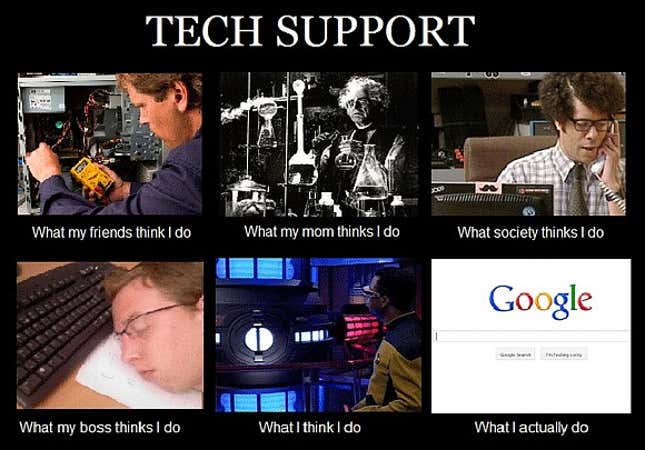
Last year, a meme called “What My Mom Thinks I Do” took hold of the internet, highlighting the disconnect between jobs held by baby boomers and those of their kids. According to the meme, parents invariably think their children are doing one of three things: saving the world, drinking beer on a threadbare couch, or becoming Mark Zuckerberg.
In fact, a recent survey by LinkedIn found that 35% of parents confessed to not really understanding what their child does for a living. So, in a reversal of the traditional Take Your Kids To Work Day, the professional networking site hosted Bring In Your Parents Day last week.
It’s a brilliant idea—here’s why:
Including parents in the professional life of young people can lead to a more successful career. A 2006 study of career choice-making adolescents showed that those without family involvement were less decisive and more likely to postpone career decisions, which led them “ultimately not to aspire to challenging vocational choices.” Those with supportive and engaged parents, on the other hand, had a better transition into the workplace.
But a lot has changed since baby boomers took their first jobs.
In the last two decades, technology has spawned a bevy of jobs—in computer design, content management, product engineering, and social media—that just didn’t exist 25 years ago. The Bureau of Labor Statistics sees this trend continuing, with scientific and technical consultants expected to grow by 58% between 2010 and 2020, and jobs in computer systems design projected to increase by 47%.
The best-paying jobs for millennials (commonly defined as the generation born between 1982 and 2000) are predominantly in these technical fields and more traditional jobs are done differently now.
Even the very concept of a career has changed. Millennials are more likely than their parents to switch between professions several times throughout their working life. According to a Pew report from last year, only 34% of 25-29 year olds—and just 11% of 18-24 year olds—consider their current job a career, compared to 52% among workers 35 and older.
Graduating from college during the most severe recession since the 1930s, millennials hold a record amount of student debt and their earnings have dropped more than any other age group. Many are still living at home and are financially dependent on their parents for longer. Bringing parents to work is like a shareholder dividend in sentiment.
While a lot has changed, much of the workplace is universal. Parents can be an invaluable source of advice on negotiating salaries, dealing with difficult bosses, and providing feedback on major career decisions. Indeed, 50% of parents believe they could help their kids on the career front if they could just understand what they do all day.